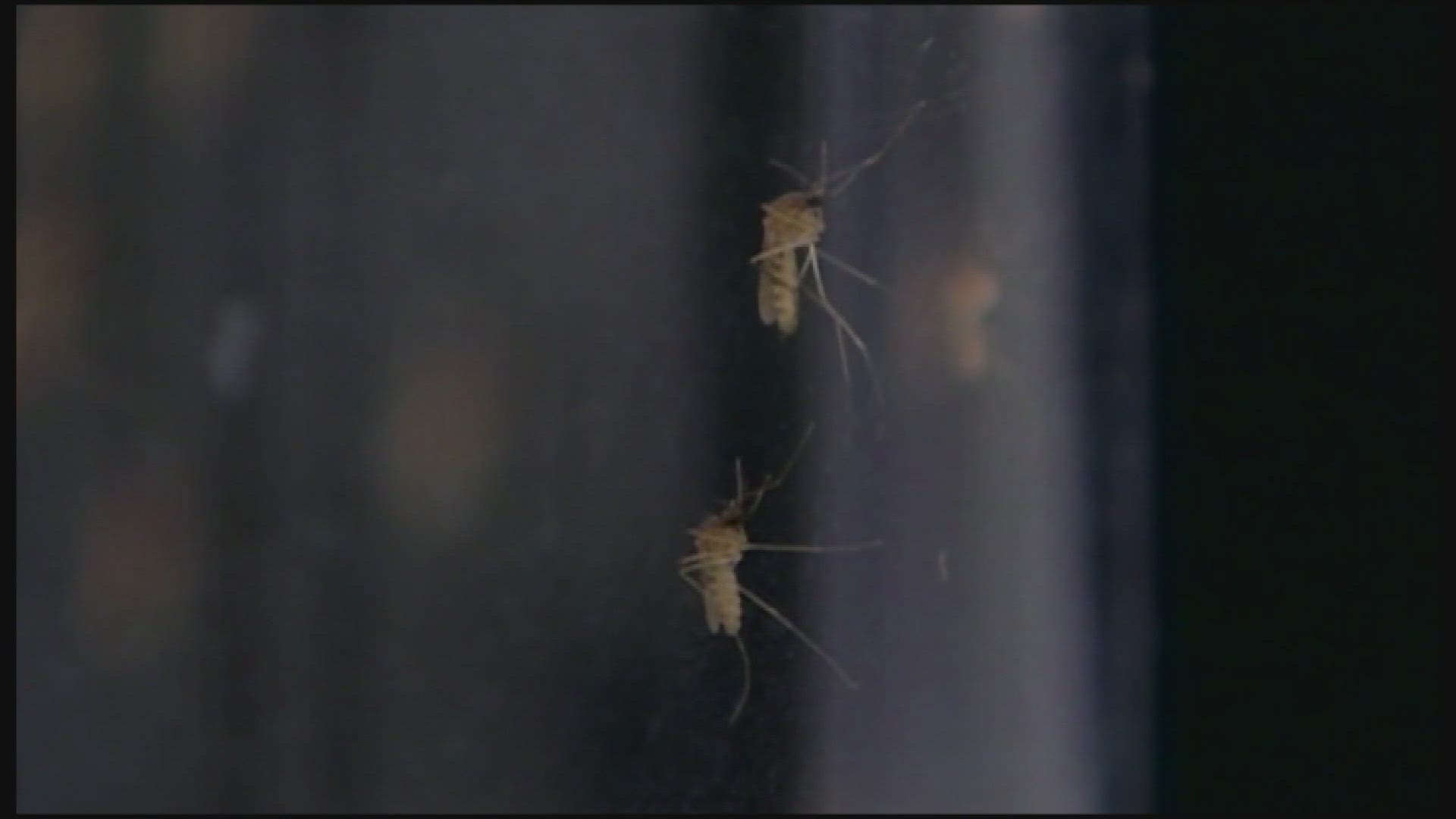ARAPAHOE COUNTY, Colo. — Health experts are urging Coloradans to take precautions after the state's first human West Nile virus case of 2024 was confirmed in Arapahoe County.
Arapahoe County Public Health said in a release Wednesday that officials are concerned about what mosquito activity may look like in the coming weeks as summer weather continues to get hotter with fewer cool nights and storms.
The release said the concern comes in part because Colorado doesn't typically see its first human case of West Nile virus until later in the summer.
“While we know that West Nile virus is endemic to Colorado—meaning we expect to see some cases each year—we never quite know how many to expect or just how bad a season will be," said Melissa Adair, communicable disease epidemiology manager at Arapahoe County Public Health. "What this first case confirms for us, however, is that West Nile virus is present in our mosquito population, and as mosquito numbers increase, the risk of West Nile virus will, too. We’re encouraging all Arapahoe County residents to take precautions now, before we see mosquitoes and illness increase this season.”
Last year was Colorado's worst for West Nile virus in 20 years, according to the release, with 631 cases spanning 40 counties, including 383 hospitalizations and 50 deaths. Arapahoe County alone had 56 cases.
Symptoms of West Nile virus usually appear 2-14 days after exposure, with one in five people developing fever, body aches, headache and occasionally skin rashes and swollen lymph nodes. Mild symptoms of West Nile virus infection usually pass on their own.
Less than 1% of people infected with West Nile virus will develop severe symptoms that affect the nervous system. People over 60 years old are at higher risk, as well as those with certain medical conditions.
Severe symptoms include headache, coma, high fever, tremors, neck stiffness, muscle weakness, confusion and disorientation, and paralysis.
Humans, birds, horses and other mammals can be exposed to West Nile virus from an infected mosquito. The following are steps you should take to limit exposure to the virus:
- Wear an EPA-approved insect repellent that includes DEET. These repellents are safe and effective for people ages 2 months and up, including those who are pregnant and breastfeeding. Click here for tips for choosing and applying insect repellent for children.
- Stay indoors at dawn and dusk, when mosquitoes are most active.
- Avoid recreating around standing water sources, such as lakes and ponds. If you are camping, use mosquito netting and/or insect repellent.
- Wear clothes to protect against mosquitoes, such as long sleeves and pants.
- Drain standing water sources including puddles, gutters, flower pots, tires, pool covers, boats and tarps.
- Prevent mosquitoes from getting indoors by using an air conditioner or fans rather than open windows, and if you do have any windows or doors with an opening, use a screen.
- If you live on a property with a septic system, take steps to prevent mosquitoes by ensuring your tank is in good condition and any vents or openings are covered or sealed.
Anyone who believes they're experiencing severe symptoms of West Nile virus should talk with a health care provider or their local public health department.
SUGGESTED VIDEOS: Health
MORE WAYS TO GET 9NEWS
Subscribe to our daily 9NEWSLETTER for top stories from 9NEWS curated daily just for you. Get content and information right now for can’t-miss stories, Next and Broncos content, weather and more delivered right to your inbox.
DOWNLOAD THE 9NEWS APP
iTunes: http://on9news.tv/itunes
Google Play: http://on9news.tv/1lWnC5n
HOW TO ADD THE FREE 9NEWS+ APP TO YOUR STREAMING DEVICE
ROKU: add the channel from the ROKU store or by searching for KUSA.
For both Apple TV and Fire TV, search for "9NEWS" to find the free app to add to your account. Another option for Fire TV is to have the app delivered directly to your Fire TV through Amazon.

